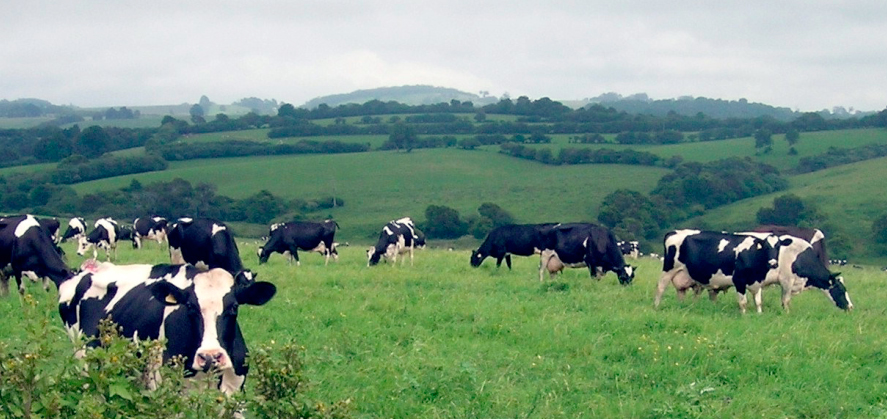
The cash flow crisis facing the agricultural industry in Wales has been starkly highlighted with the latest Welsh Government Farm Income forecasts predicting a decline in profitability across all the key farming sectors in Wales.
The figures, based on the latest Farm Business Survey results show that average farm business income across ‘All Farm Types’ is forecast to decrease by nearly £5,000 to £24,500 for the year to March 2016 - a decline of around 16%.
For dairy farms, average farm business income is forecast to decrease by a massive 40%; cattle and sheep (LFA) farms are forecast to fall by 4% while farm business incomes on cattle and sheep (lowland) farms are expected to decline by 8% over the period.
NFU Cymru President Stephen James said, “Unfortunately given the fall in farm gate prices we have seen for our milk, lamb and crops this past year it was inevitable that we should see a drop in farm business income, these figures show how dramatic that impact has been on farming businesses the length and breadth of Wales.”
“Even more sobering is the fact that average net farm income is forecast to decline by a quarter to £13,000 for the 2015-2016 accounting period, net farm income is the return to the farming family for their labour after costs such as rent and depreciation and starkly highlights the challenge the Welsh agricultural industry faces at this time.”
Mr James continued, “This lack of cash is not just a worry for farmers; rural businesses that rely on farmers for so much of their income are also suffering. These figures, I hope, will be a wakeup call to the rest of the supply chain that they must now work with farmers on a longer term relationship that delivers some certainty on pricing to give farmers the confidence that food production can be profitable.
“I remain optimistic for our long term future, the demand for food at both a domestic and global level will grow and I am confident that we can play our part in meeting the challenge of producing more food whilst protecting and enhancing the environment and meeting our climate change obligations.
"To do this we need the money to invest in our production systems and the security that we will receive a fair price for our product, there are good examples where retailers working closely with farmers have helped reduce the risk and volatility associated with producing high quality food, these examples however remain few and far between in Wales.”
Mr James concluded, “Clearly Government also has a role to play, we are concerned at the threat of further costly regulation, particularly in the form of potential new Nitrate Vulnerable Zone regulations adding cost to many farming businesses, this may be the final straw for some, particularly in the dairy sector. Of immediate concern is the delivery of CAP direct payments with over 10% of farmers still awaiting their advance payment, this matter must be addressed with the delivery of the balance payment to all farmers made as soon as possible thereafter.”
